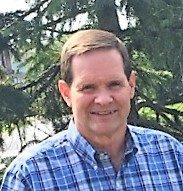Some weeks ago I heard an interview with former Governor Mitch Daniels, now president of Purdue University. The occasion of the interview had to do with preparedness in the COVID-19 outbreak. He reflected that we had gone a decade or more never taking seriously this kind of possibility. For years experts told us this was going to happen, he said. If was never “if,” but “when.”
While it is easy to be a Monday morning quarterback, Gov. Daniels has a point. This wasn’t hard to see coming. What is hard is getting over the denial that blinds us to the world we are living in. As with most of us, it takes a near life and death crisis in order for us to change.
Over the past several weeks our churches have felt the crush. No gatherings and worship services have many downsides, but one of them is financial. For a long time we have lived with a very high correlation between attendance and giving. When people come, they give. When they don’t come, they don’t give. We have watched the attendance patterns in our church become lower, or more erratic, or both. Yet we never thought about putting a full set of electronic options in place that would mitigate our reliance on our people being in the building. Once we catch our crisis breath, we would do well to run a strong campaign toward automated giving, easy website giving, and simple giving through our phone.
Along with the decline in attendance there has come, no surprise, a decline in community. Too many people see the church mortgage as just that—the church’s mortgage. They do not see it as “our” mortgage. They see the church’s programs as just that—the church’s programs. They speak in “you” and “your” language, rather than “we” and “our” language.
Another point of denial has been that we do not yet see that people aren’t connected to our building, or our institution, but rather our mission. Many times we do a poor job of fostering a sense of community around our mission. We talk about the budget. We talk about the bills. We talk about the building. We don’t live in the world of budgets, bills, and buildings anymore. We live in the world of mission, of living out a purpose with a group of people. We simply must talk more about discipleship, and transformation, and how our church is making it happen. That motivates people to give money.
Finally, we have allowed people to remain intentionally blind to the fact of their death. Hopefully, we will not succumb to this virus; but, rest assured my friend, we will succumb eventually. Churches that do not remind people to support the mission in their death—through their estate—are committing a slow, deliberate suicide. Some of our largest gifts, and hence our greatest fuel for mission and transformation, are with people who may not be with us in 10-20 years.
It isn’t if. It is when. And when is now.
Would your church like help building stronger stewardship? Our Foundation is here to help. Give us a shout by clicking here or calling 877-391-8811.
Follow and Like us on Facebook.
Glenn Howell
Director of Development
United Methodist Foundation of Indiana


Recent Comments